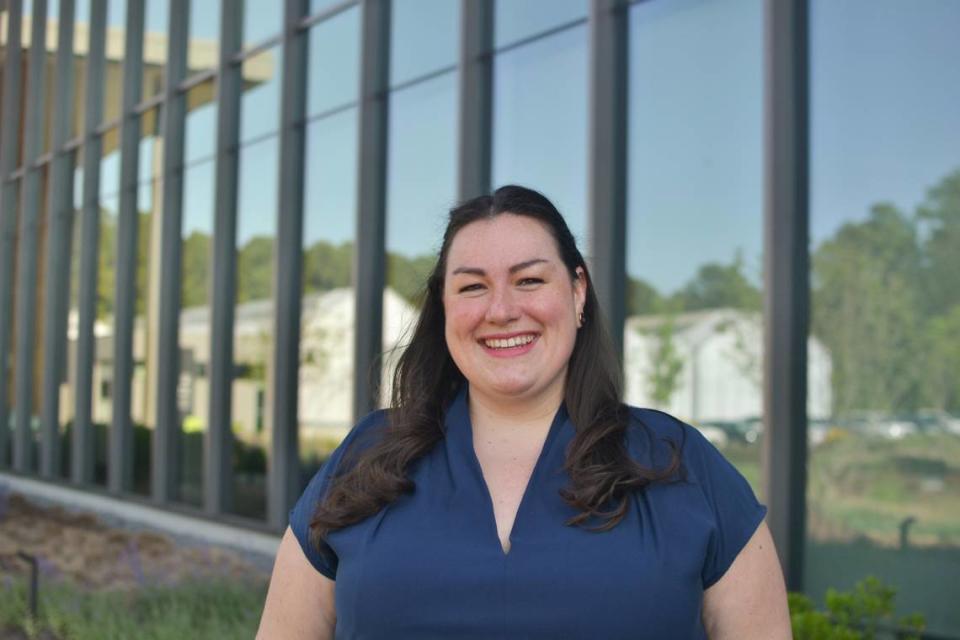Durham startup making lab-grown breast milk raises $21 million from investors
Biomilq, a Durham startup with ambitions to make a lab-grown version of breast milk, has raised $21 million in a Series A round from investors, the company said Wednesday.
Biomilq has been culturing mammary cells inside a lab in Research Triangle Park since 2019, aiming to create a cell-based milk that mimics the nutritional values of human breast milk.
From the beginning, the company has captured the attention of major investors, including a seed round last year from Breakthrough Energy Ventures, an environment-focused investment group started by Microsoft founder Bill Gates.
Breakthrough has once again invested in Biomilq. It was joined by the parent company of Danish pharmaceutical giant Novo Nordisk, Alexandria Venture Investments, Blue Horizon Ventures and several others.
The funding comes after Biomilq reported a major breakthrough in its technology. In June, the company said it had, for the first time, created a product that closely matched the nutrient profile of human breast milk.
“When we first raised (money), we raised on a proof of concept that we could produce some of the complexity of milk,” said Biomilq CEO Michelle Egger, who founded the company with Leila Strickland, a cell biologist by training. “But we still had a long way to go,” she said.
While Biomilq has not yet perfected the process, Egger said, the results from June have given the company encouraging enough signs to accelerate its growth.

“What we’re producing is not ever going to be bio-identical necessarily to breast milk,” she said. For one, it cannot pass on antibodies, like breast milk can. “But it is as close as to what we can get outside of the body,” she said, “and nutritionally it has the structure (and) function capability a body could produce.”
Biomilq was founded after Egger’s co-founder Strickland struggled to pump breast milk for her child while working.
Feeding newborns breast milk during the first months of their lives is seen as a priority because it provides crucial nutrients for human development. But for some mothers, it is not always possible for myriad reasons, like low milk production or a lack of support at work. That leads many parents to resort to soy- or dairy-based formula.
Egger has said that the goal of Biomilq is not to replace breast milk — but rather to create a better option when it isn’t possible.
Only 38% of infants are exclusively breastfed globally, and in the U.S., only 75% of infants are breastfed from birth, according to a study published by a branch of the National Institutes of Health.
Biomilq will use its new funding to expand its workforce in Research Triangle Park. The company has around 20 employees at the moment, but could reach 30 by the start of next year.
It will also expand the quantities of cell-grown milk it can produce at its lab.
“Previously, in our experiments, we were producing very small quantities of milk — to the point where it was so precious that we couldn’t do anything other than test for composition,” she said. “This moves us up into the liter space. It gives us the ability to produce significantly more product (and) begin to move into safety testing.”
That safety testing will be critical to the company’s future success, as novel technologies, like cell-grown meat, milk and other products will likely be closely scrutinized by regulators like the U.S. Food and Drug Administration.
“I think, for us, the science needs to lead the way in terms of proving that it’s safe and proving that it’s of high quality,” Egger said.
Biomilq is not the only company trying to make a better alternative to formula. Turtle Tree Labs, a Singapore-based company, is also making cell-based milk, and recently opened a lab in California to expand its operations.
But Biomilq’s funding round gives it more money to grow with, and Egger says she feels very confident about her company’s ability to grow in the Triangle.
When she was first trying to raise money for Biomilq, Egger said, investors repeatedly told her she would need to move to the Bay Area or Boston to attract talent. The Triangle, however, has not proven to be a hindrance in that regard, she said.
“I mean, the reason Research Triangle Park was created was the fact that it was equidistant between world class institutions with an incredible density of PhDs, especially in biomedical engineering,” she said. “Really, there are few places where you can find this level of bio-manufacturing capability.”
On top of that, she said, the Triangle’s cost of living has helped it recruit talent from high-cost metro areas.
“We have had a number of people move from places where cost of living was too high to have a young family,” she said. “You know, the Research Triangle really represents a different way of living for a lot of our team.”
This story was produced with financial support from a coalition of partners led by Innovate Raleigh as part of an independent journalism fellowship program. The N&O maintains full editorial control of the work. Learn more; go to bit.ly/newsinnovate

 Yahoo Finance
Yahoo Finance 